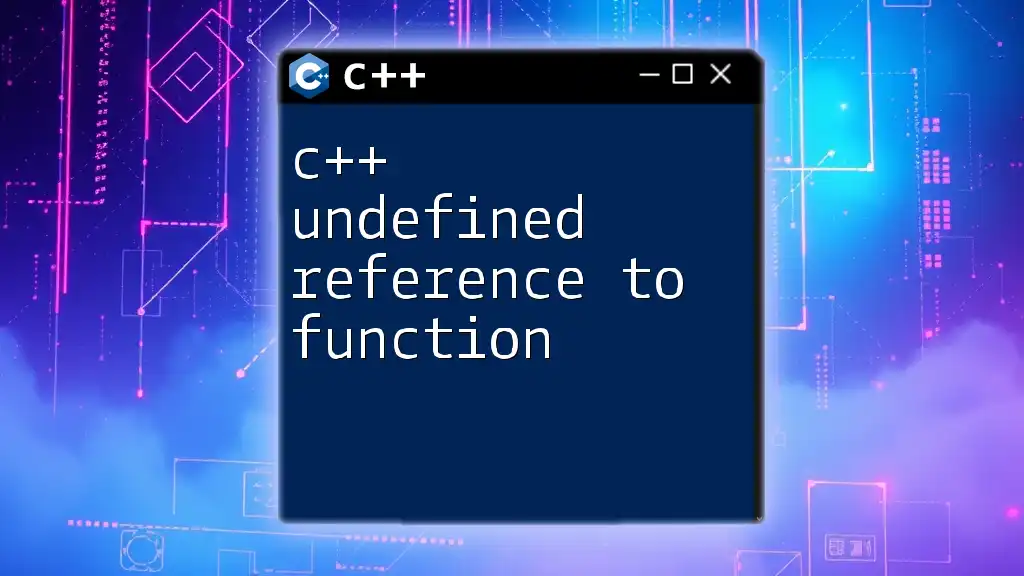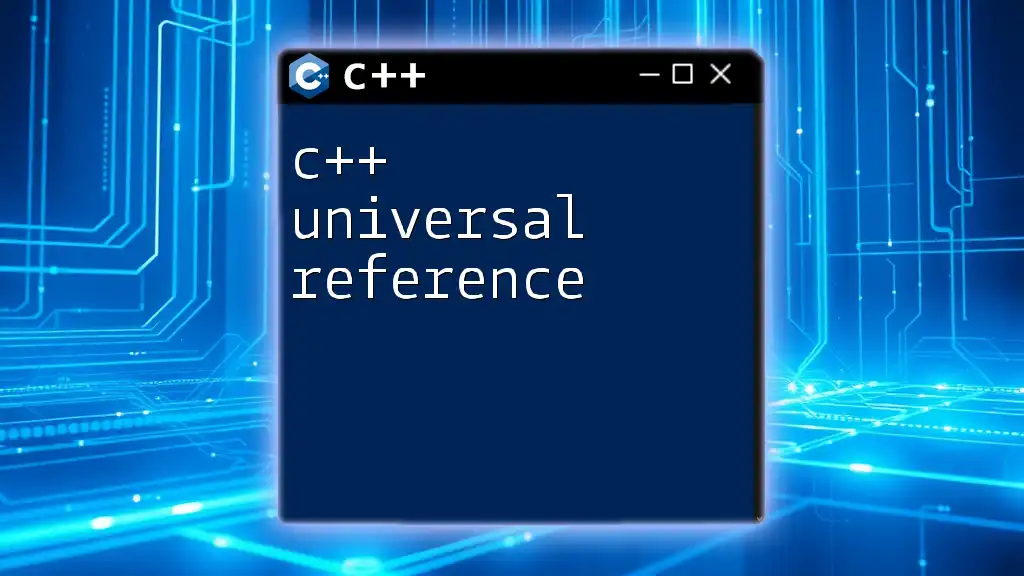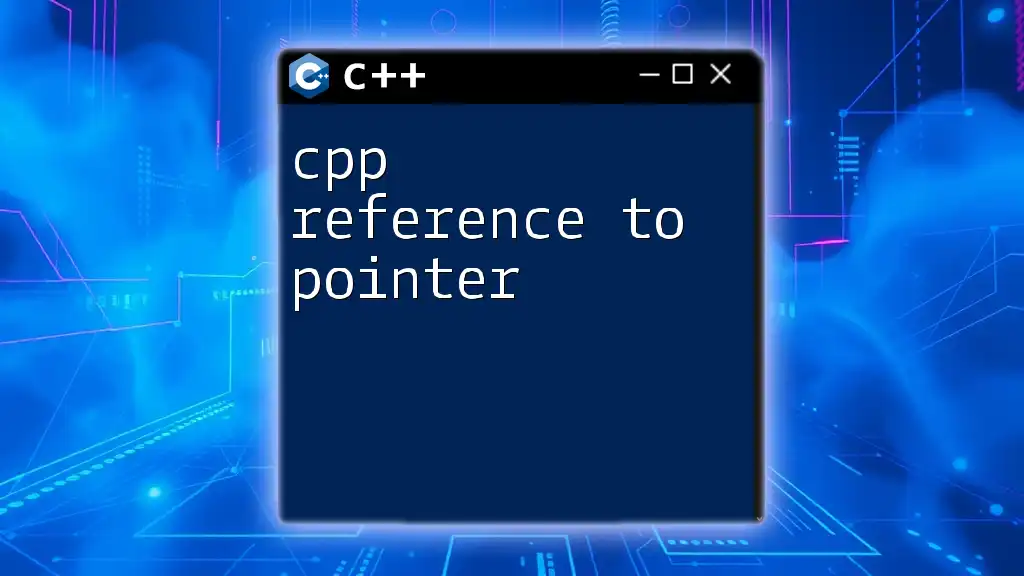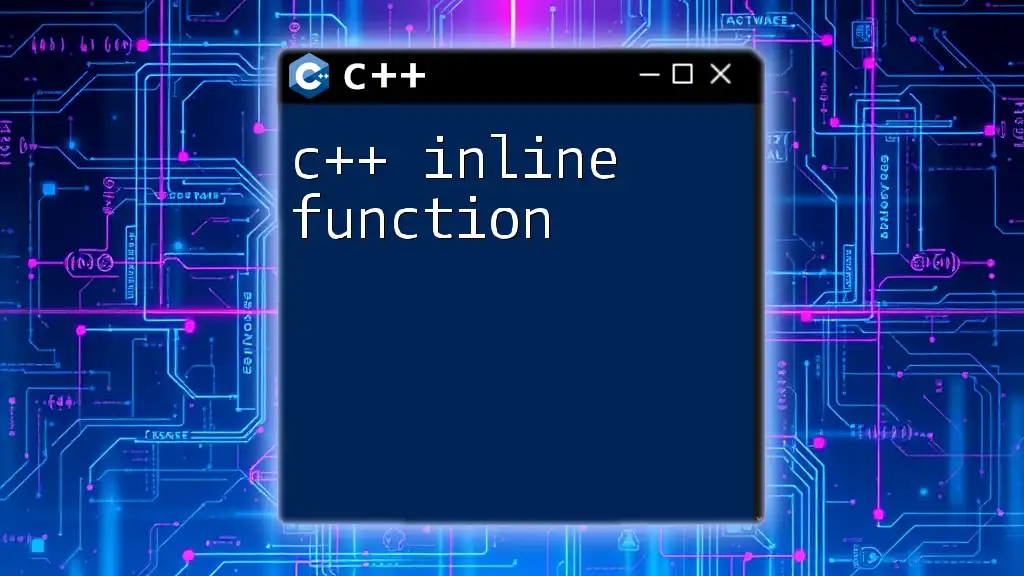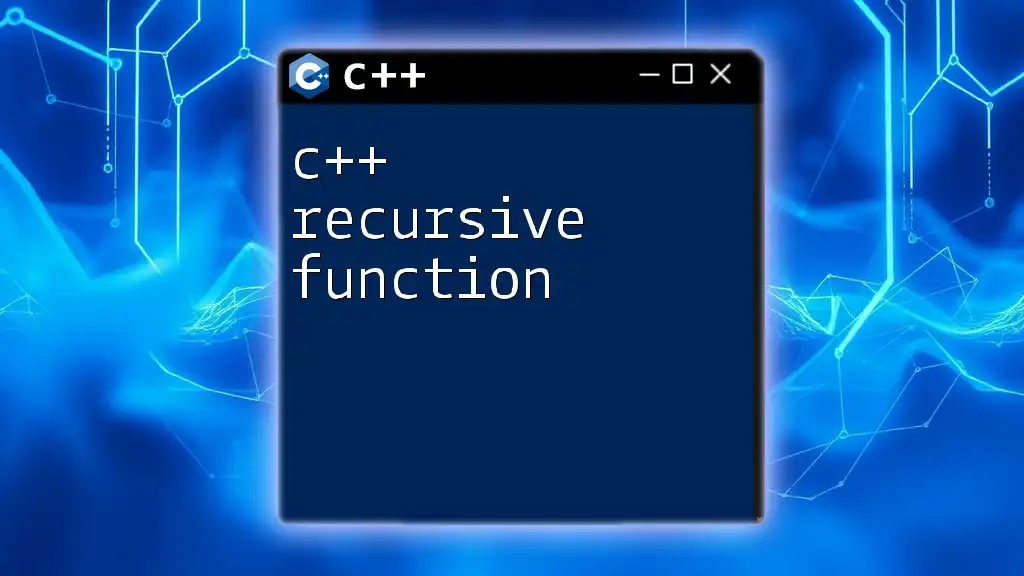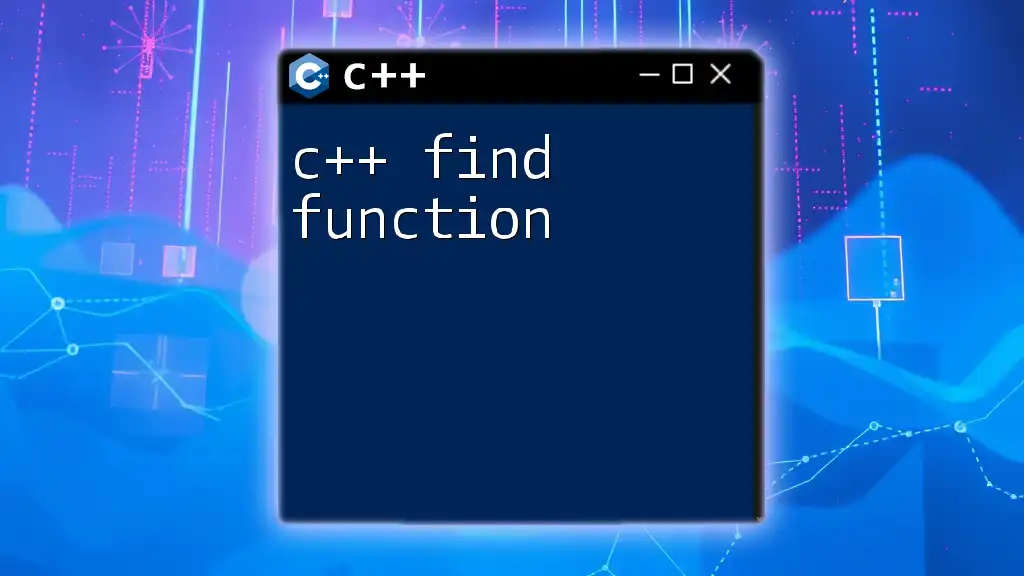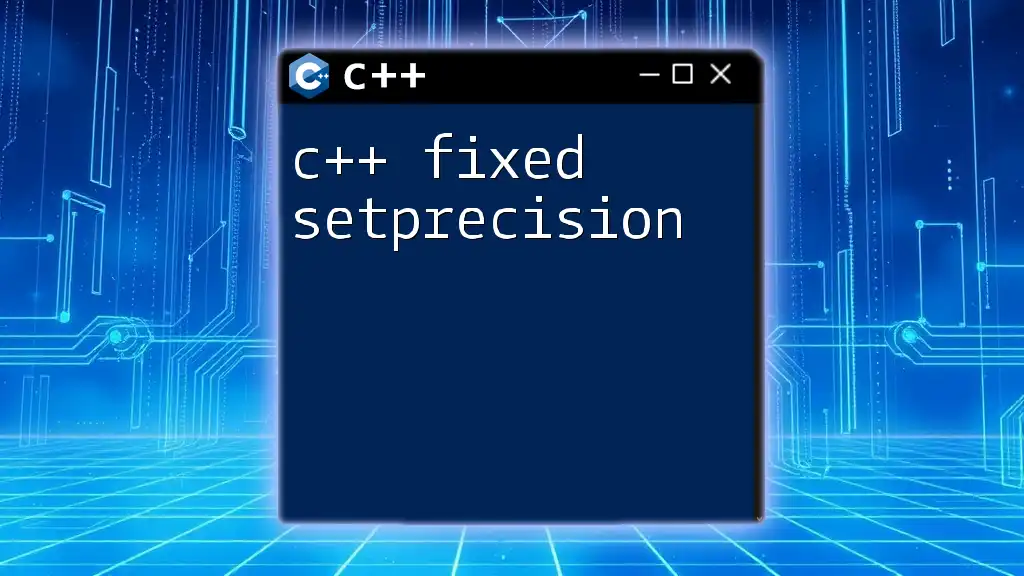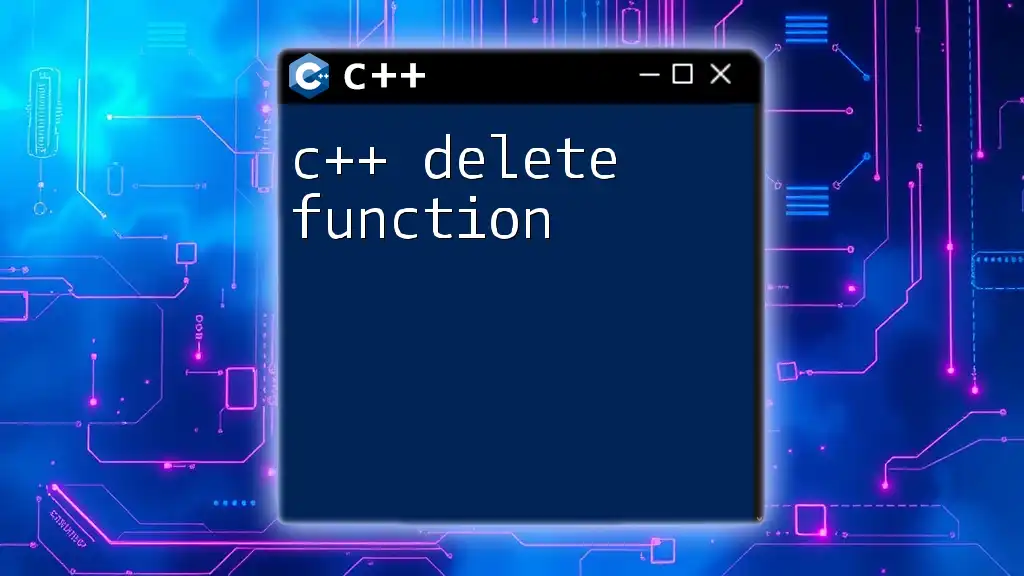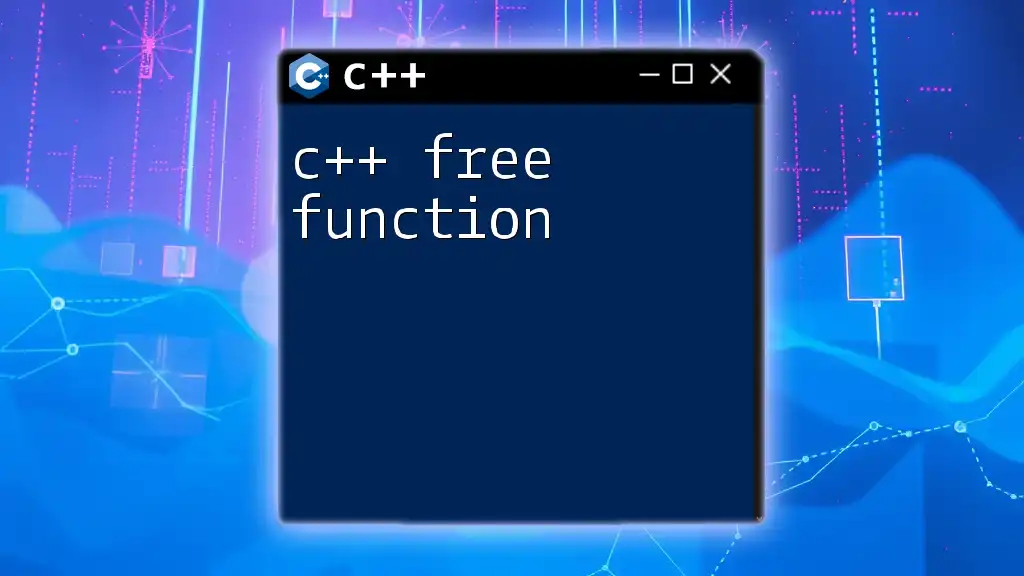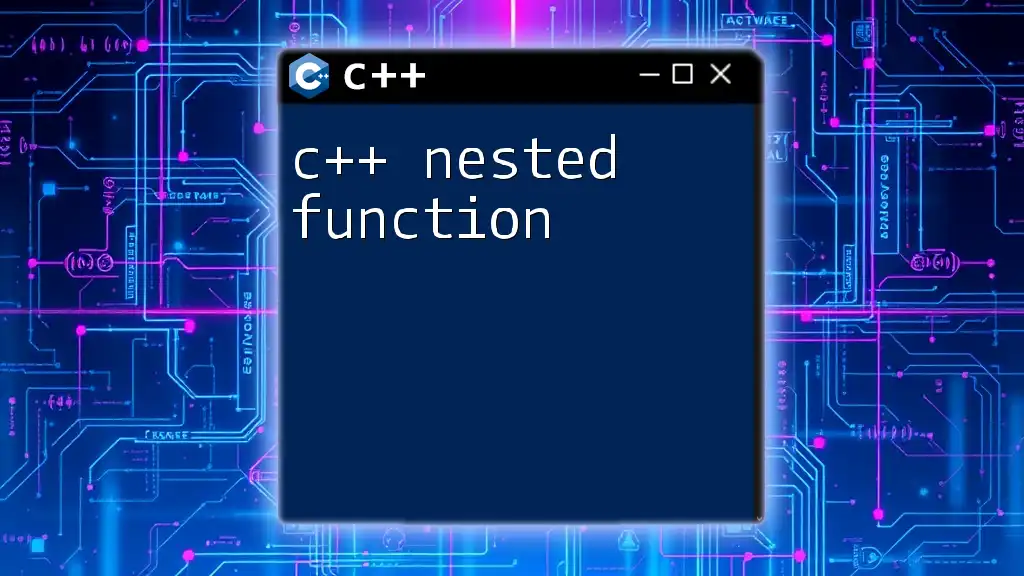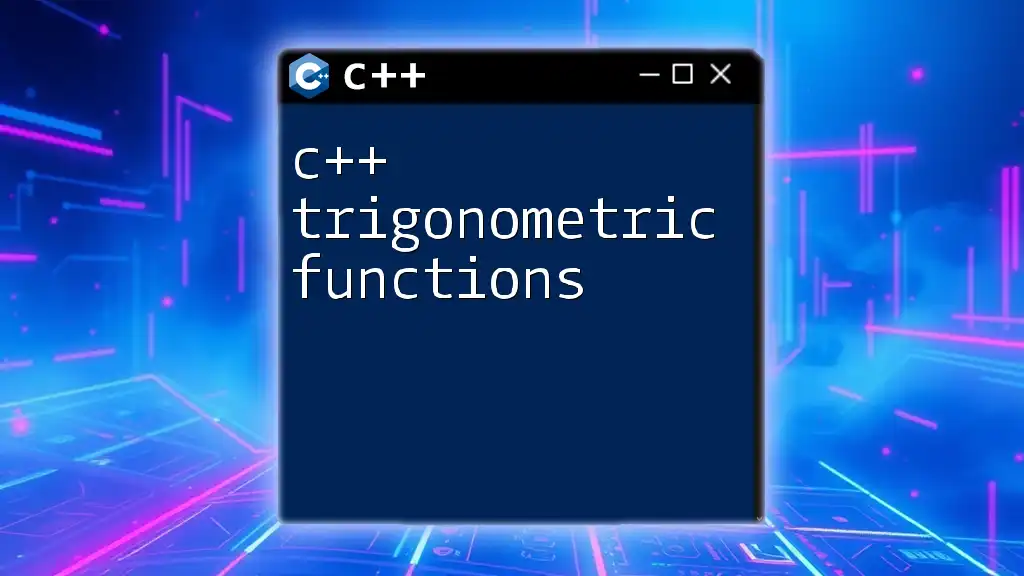In C++, an "undefined reference to function" error occurs when the linker cannot find the definition for a function declared in a source file, often due to missing implementations or incorrect linking of object files.
Here's a code snippet demonstrating a common scenario that might cause this error:
// main.cpp
#include <iostream>
// Declaration of function
void myFunction();
int main() {
myFunction(); // Call to the undefined function
return 0;
}
// Undefined function implementation (missing)
In this example, if `myFunction()` is not defined anywhere in the project, you'll encounter an "undefined reference" error during the linking phase.
Understanding Undefined References
What is an Undefined Reference?
In C++, undefined reference errors occur during the linking phase of the program compilation. While compilation translates your source code into machine code, linking combines various object files into a single executable. When the linker encounters a function call whose definition it cannot find, it generates an "undefined reference to function" error.
Causes of Undefined Reference Errors
There are several common causes of undefined reference errors in C++:
-
Calling functions that are not defined: This often happens when you declare a function in a header file but forget to implement it in a source file.
// Example of a missing function implementation void myFunction(); // Declaration int main() { myFunction(); // Call return 0; } // Error: undefined reference to 'myFunction' -
Missing object files during the linking phase: When not all the necessary files are provided to the linker, it can't resolve function calls.
g++ main.cpp -o myProgram // If myFunction.cpp is not included, it will lead to an undefined reference error. -
Incorrect function signatures: Mismatches in function signatures between declaration and definition can also lead to errors.
// Example of a signature mismatch void myFunction(int a); // Declaration // Definition with different parameter type void myFunction(double b) { // Function implementation } // Error: undefined reference to 'myFunction(int)' -
Use of inline functions without definitions in header files: When an inline function is declared but not defined in an accessible location, it can cause an undefined reference error.
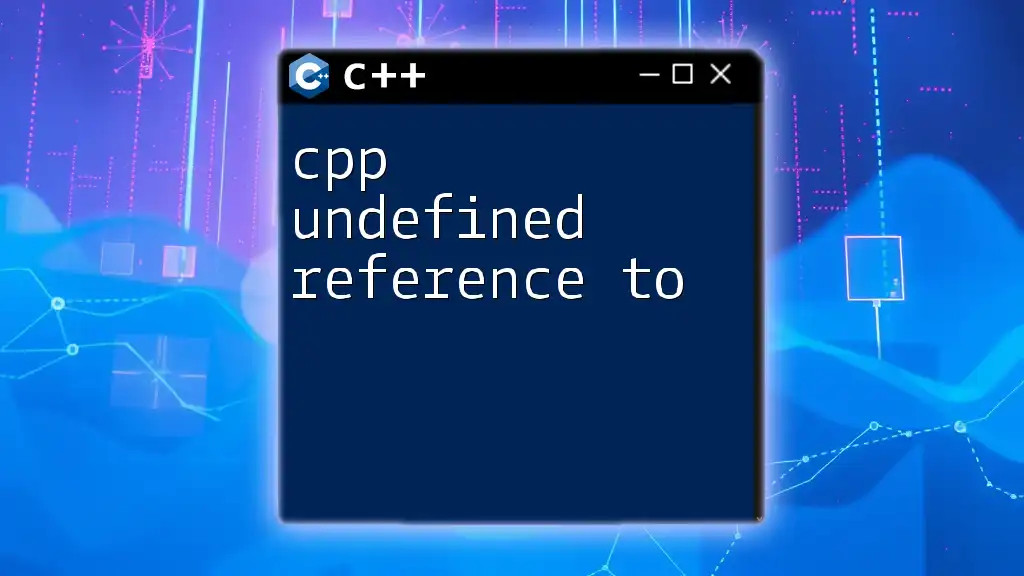
Common Scenarios Leading to Undefined Reference Errors
Example: Missing Function Implementation
In this scenario, consider a file structure where a function is declared but not implemented.
// myFunctions.h
void myFunction();
// main.cpp
#include "myFunctions.h"
int main() {
myFunction();
return 0;
}
// Compiler Error: undefined reference to 'myFunction'
This error indicates that while the compiler could see the declaration, it couldn't find the implementation.
Incorrect Header Guard Usage
Header guards prevent multiple inclusions of the same header file. However, incorrect use can lead to undefined references.
// myHeader.h
#ifndef MY_HEADER_H
#define MY_HEADER_H
void myFunction();
#endif // MY_HEADER_H
// If the header is improperly guarded, it can lead to problems during linking.
When incorrectly defined, the function might not be available in the linking context, leading to undefined reference errors.
Using Inline Functions Incorrectly
When using inline functions, ensure that they are both declared and defined in the same translation unit, usually in the header file.
// myFunctions.h
inline void myFunction() {
// Implementation
}
// If omitted in the header, using myFunction in another file can cause an error.
The linker won’t find the definition and will throw an undefined reference error.
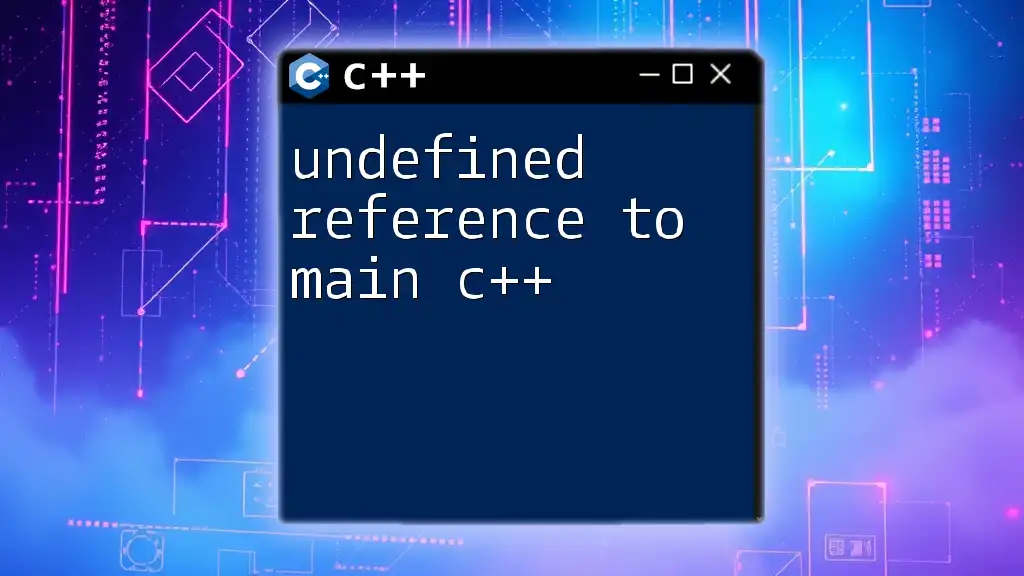
Strategies to Resolve Undefined Reference Errors
Identifying the Source of the Problem
Diagnosing undefined reference errors requires careful examination. Begin by using compiler options like `-Wall` and `-Werror`, which can provide more detailed warnings:
g++ -Wall -Werror main.cpp
This approach will highlight problematic areas in the code. Be sure to read error messages carefully to ascertain which function is causing the issue.
Providing the Function Definition
Ensure that every declared function has a corresponding definition. Here’s how to define `myFunction` correctly:
// myFunctions.h
void myFunction();
// myFunctions.cpp
#include "myFunctions.h"
void myFunction() {
// Correct implementation
}
// main.cpp
#include "myFunctions.h"
int main() {
myFunction();
return 0;
}
Following this structure guarantees that calling `myFunction` works without generating linker errors.
Verifying Linker Settings
Linker settings differ across IDEs and compilers. For instance, when using GCC, ensure all relevant object files are specified:
g++ main.cpp myFunctions.cpp -o myProgram
If you omit `myFunctions.cpp`, the linker won't find `myFunction`, thus throwing an undefined reference error.
Check Function Signatures
Keep an eye on your function signatures to prevent mismatches. For example:
// myFunctions.h
void myFunction(int a); // Expected declaration
// myFunctions.cpp
void myFunction(double b) {
// Implementation with different parameter
}
// Error: undefined reference due to signature mismatch
Always verify that the types and number of parameters match up in both declaration and definition.
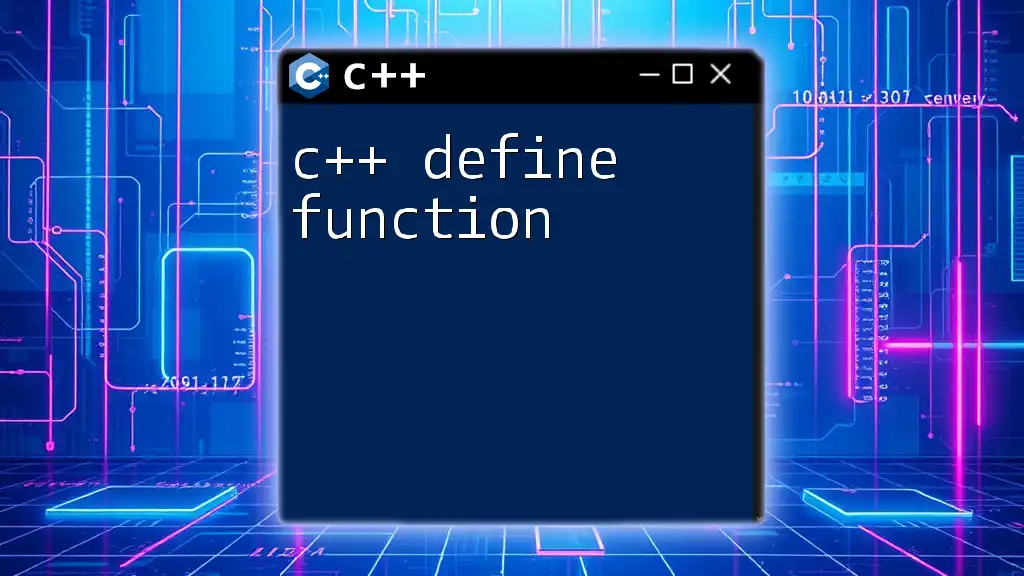
Preventing Undefined Reference Errors
Best Practices in C++ Programming
To avoid undefined reference errors, adopt best practices:
-
Modular Code: Organize your code into different modules or libraries, ensuring that each function is defined where it is declared.
-
Consistency in Naming: Use clear and consistent naming conventions to avoid confusion between different functions.
-
Documenting Function Signatures: Maintain good documentation to clarify where each function is defined and used.
Utilizing Build Systems
Consider using build systems like CMake or Makefile to manage your project efficiently. These tools automate the process of compiling and linking different source files, minimizing the risk of missing implementations.
Here’s a simple `CMakeLists.txt` example:
cmake_minimum_required(VERSION 3.10)
project(MyProject)
add_executable(myProgram main.cpp myFunctions.cpp)
This simplifies the build process and ensures all necessary components are linked together.
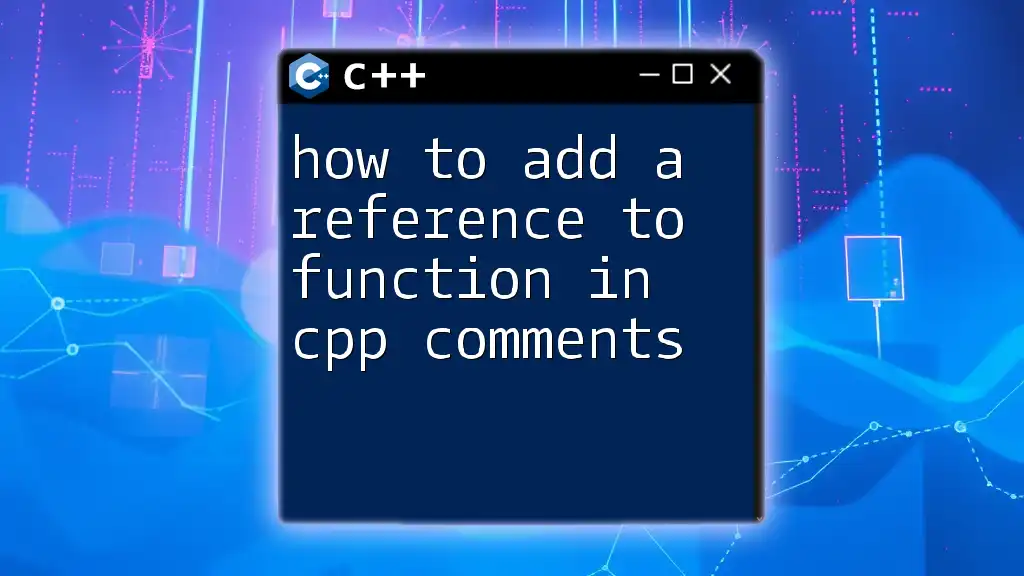
Conclusion
Understanding and resolving "C++ undefined reference to function" errors is an essential skill for every C++ programmer. By identifying the source of these errors, providing function definitions, verifying linker settings, and adhering to best practices, you can significantly minimize these linking issues. Remember, practice and experience are key in mastering these concepts, so continue exploring and refining your C++ skills.

